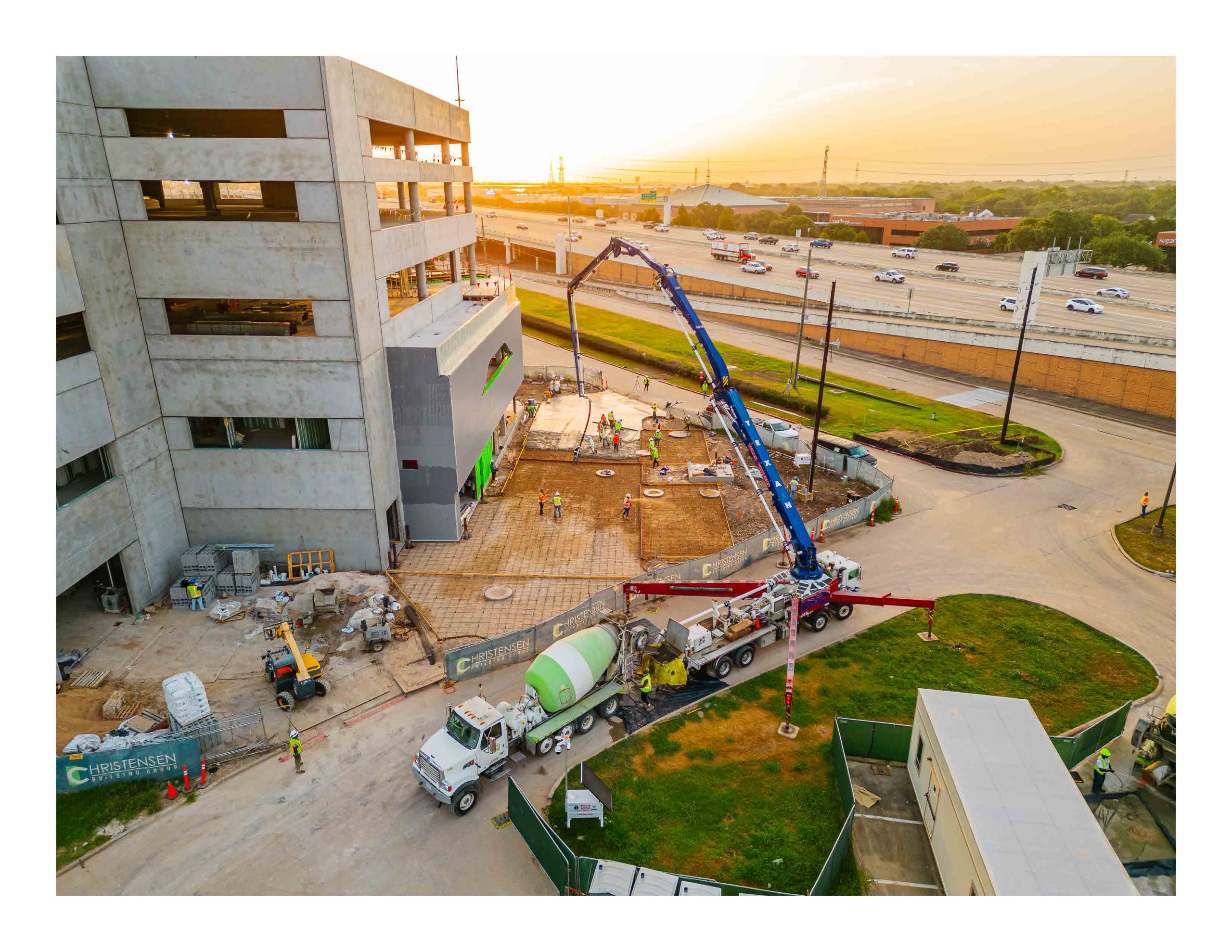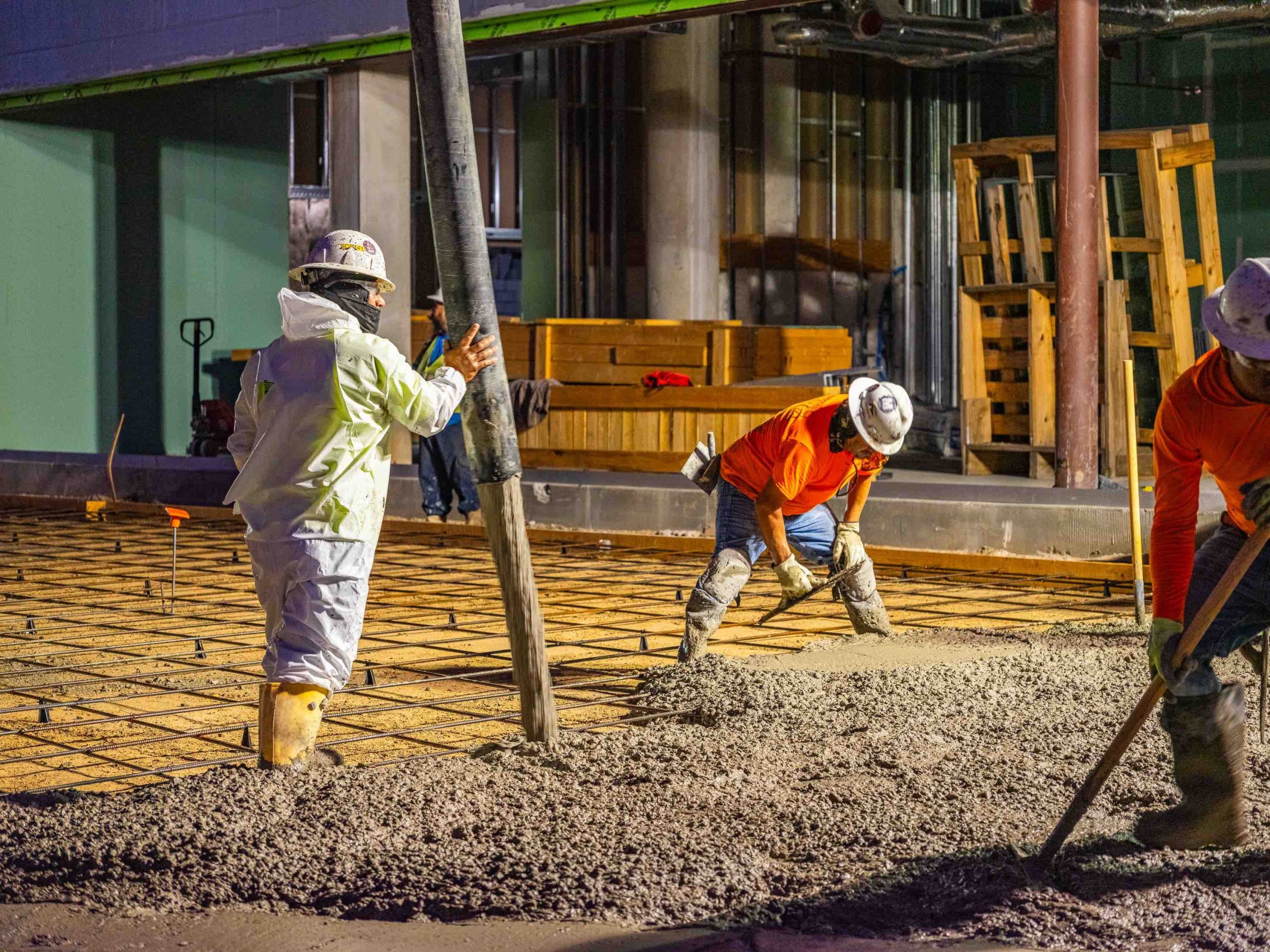

finished like conventional mixes.
Terra CO2 Technology Holdings, Colorado developer of equipment and processes netting low-carbon alternatives to portland cement, reports successful use of its OPUS Supplementary Cementitious Material (SCM) for a demonstration pour at the Porsche Sugar Land dealership site in Houston. Concrete specimen testing by Texas-based Alpha Testing LLC confirms that the binder performs on par with traditional SCMs in terms of durability, strength, and functionality.
The proprietary process behind OPUS SCM uses widely available silicate-based raw materials, readily sourced from typical aggregate operations. To reach commercial level output, Terra CO2 has developed an advanced reactor and processing infrastructure for precisely engineered binder. When used as a portland cement replacement, OPUS SCM equates to 70 percent lower carbon dioxide and 90 percent lower NOx emissions, ton by ton, without impacting concrete mix designs, batching, delivery, and placement.
“Reducing our carbon footprint is top of mind and finding innovative ways to do it is part of our culture,” says Kelly Wolf, CEO of indiGO Auto Group, Porsche Sugar Land owner.
“Pioneering the use of a supplementary cement in Texas, like OPUS SCM, is monumental because it not only matches the performance of traditional SCMs, like fly ash, but also significantly reduces environmental impact without any changes to the conventional workflows of concrete batching and placement. Decarbonizing construction is a climate imperative, and we’re excited to have a partners like Terra and indiGO that are committed to making a real impact in Texas and across the industry,” adds general contractor Mark Christensen, whose eponymous firm worked with indiGO Auto Group, ready mixed producer Odi & Son, concrete contractor A.G.E. Construction and engineer Dally & Associates to ensure the Porsche Sugar Land OPUS SCM mixes met specifications.
Beyond portland cement substitution, Terra CO2 presents additional carbon savings through lower transportation factors: By building production lines at local aggregate operations with suitable silicate raw feeds, it can minimize SCM delivery distances for concrete producers, especially those serving major markets. “Our work is about forging a viable path for sustainable construction. We’re set on creating a blueprint for the future where performance, cost-effectiveness, and sustainability coexist seamlessly across projects,” affirms Terra CO2 CEO Bill Yearsley. “We’re moving beyond the lab, beyond the processes that have held us back as an industry, and introducing a sustainable solution to real-world applications.”